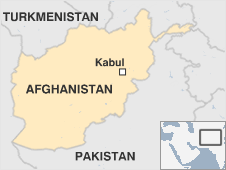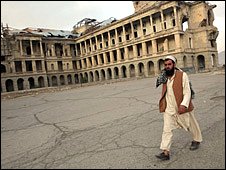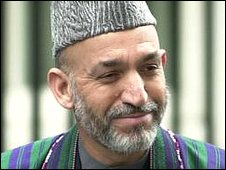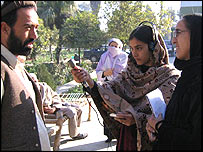Generic Medicines
Taj Pharma is the largest generic pharmaceutical company in India. We hold top positions in different established markets worldwide generics markets..
Landlocked and mountainous Afghanistan has suffered from such chronic instability and conflict during its modern history that its economy and infrastructure are in ruins and many of its people are refugees.
 |
Since the fall of the Taliban administration in 2001 adherents of the hard-line Islamic movement have re-grouped. It is now a resurgent force particularly in the south and east and the Afghan government has struggled to extend its authority beyond the capital and to forge national unity.
Its strategic position sandwiched between the Middle East Central Asia and the Indian subcontinent along the ancient "Silk Route" means that Afghanistan has long been fought over - despite its rugged and forbidding terrain.
It was at the centre of the so-called "Great Game" in the 19th century when Imperial Russia and the British Empire in India vied for influence.
AT A GLANCE
Nato leads the International Security Assistance Force (Isaf) a peacekeeping body
Attacks by the Taliban continue particularly in the south
A new constitution was agreed by an assembly of tribal leaders in 2004
|
And it became a key Cold War battleground after thousands of Soviet troops intervened in 1979 to prop up a pro-communist regime leading to a major confrontation that drew in the US and Afghanistan's neighbours.
But the outside world eventually lost interest after the withdrawal of Soviet forces while the country's protracted civil war dragged on.
The emergence of the Taliban - originally a group of Islamic scholars -
brought at least a measure of stability after nearly two decades of conflict.
But their extreme version of Islam attracted widespread criticism.
The Taliban - drawn from the largest ethnic group the Pashtuns - were opposed by an alliance of factions drawn mainly from Afghanistan's other communities and based in the north.

Social political systems as well as infrastructure must be rebuilt
|
In control of about 90% of Afghanistan until late 2001 the Taliban were recognised as the legitimate government by only three countries.
They were at loggerheads with the international community over the presence on their soil of Osama bin Laden accused by the US of masterminding the bombing of their embassies in Africa in 1998 and the attacks on the US on 11 September 2001.
After the Taliban's refusal to hand over bin Laden the US initiated aerial attacks in October paving the way for opposition groups to drive them from power.
Infighting between local commanders over power and territory became a feature of the post-Taliban period. The authorities in Kabul have been able to exert little control beyond the capital and militant violence has continued.
Predictions of the Taliban's demise after the adoption of a new Afghan constitution in 2004 proved to be premature - the hard-line group came back with a vengeance and violence has risen steadily to levels not seen since the fall of the Taliban in 2001.
The Afghan conflict replaced Iraq as the main policy headache for the US and their allies and in March 2009 US President Barack Obama unveiled a new American strategy for Afghanistan and Pakistan to combat what he called an increasingly perilous situation.
Afghanistan's drugs industry was reported to make up more than half of the economy by 2007 having boomed since the fall of the Taliban. The country supplies over 90% of the world's opium the raw ingredient of heroin.
International bodies and governments say the drugs trade is helping to fuel the Taliban insurgency which is estimated to receive up to US$100m a year from the trade.
The UN Office on Drugs and Crime has called on Afghanistan to target the major traffickers and corrupt government officials who it says operate with impunity in the country.
President: Hamid Karzai
Hamid Karzai in power since the Taliban rule was ended in 2001 won a second five-year term as president in an August 2009 election widely criticised both at home and abroad as being marred by widespread fraud.

Hamid Karzai embarked on a second term in office in November 2009
|
Initial vote tallies for the first round looked set to give Mr Karzai an outright win but the UN-backed electoral complaints authority discounted hundreds of thousands of votes as fraudulent cutting his share of the vote to under 50%.
This result would have forced a second round but Mr Karzai was declared the winner when the second-placed candidate former Foreign Minister Abdullah Abdullah withdrew from the race claiming not enough had been done to prevent further fraud.
Mr Karzai was finally sworn in for a second term as president in November 2009.
He said in his inauguration speech that he was determined to tackle the problem of corruption.
He also said that the strength of Afghan security forces had to be bolstered and the role of international forces reduced. However many observers believe that it could be decades before the Afghan army is in a position to dispense with international assistance entirely.
Hamid Karzai was initially put in charge of the provisional administration set up when the Taliban were driven from power in 2001 and won Afghanistan's first direct presidential elections in October 2004.
He faced the tough challenges of forging national unity disarming regional militias and tackling drug production.
Mr Karzai a Pashtun leader was seen an effective player on the world stage and initially he enjoyed strong backing from his Western allies. In 2002 persuaded international donors to pledge $4bn to help rebuild his country.
However the president's relations with the West cooled significantly towards the end of his second term amid allegations of widespread corruption in his administration.
Mr Karzai has defended the presence of international troops in Afghanistan but has been critical of coalition air strikes that have caused heavy civilian casualties.
Born in the southern Afghan town of Kandahar in 1957 Hamid Karzai studied in India and France. Exiled in Pakistan for much of the Soviet occupation and during Taliban rule he was chosen as post-Taliban Afghanistan's interim leader in late 2001.
Afghanistan's constitution which was adopted in 2004 by an assembly of tribal representatives envisages a powerful presidency and defines Afghanistan as an Islamic republic where men and women enjoy equal status before the law.
The growth in the number of media outlets - private TV stations in particular - has characterised the post-Taliban media scene.
 Media outlets have flourished in the post-Taliban years
|
There are scores of radio stations dozens of TV stations and some 100 active press titles operating under a wide range of ownerships - from the government provincial political-military powers and private owners to foreign and NGO sponsors. The main private TV and radio networks command large audiences.
An Australian-Afghan media group Moby Capital Partners operates some of the leading stations including Tolo TV and Arman FM.
Much of the output on private TV stations consists of imported Indian music shows and serials and programmes modelled on Western formats. The channels are very popular in urban centres especially among the under 30s.
However media laws prohibit material that is deemed to run counter to Islamic law and some private stations have drawn the ire of conservative religious elements. Press freedom group Reporters Without Borders says media regulatory bodies are "under the government's thumb".
Relays of foreign radio stations or stations funded from overseas are on the air in Kabul including the BBC Radio France Internationale Deutsche Welle and US-funded broadcasts from Radio Free Afghanistan which uses the name Azadi Radio and the Voice of America which brands its Dari and Pashto broadcasts as Radio Ashna ("Friend").
BBC World Service is also available on FM and mediumwave (AM) in other parts of Afghanistan.
Newspaper readership has seen a significant leap from almost nil under Taliban rule. Newspapers tend to reflect more openly on domestic developments than do broadcasters.
Internet access is scarce and computer literacy and ownership rates are low. There were 500,000 internet users by December 2008 (ITU).
Afghanistan's media were seriously restricted under Taliban rule. Radio Afghanistan was renamed Radio Voice of Shariah and reflected the Islamic fundamentalist values of the Taliban. TV was seen as a source of moral corruption and was banned.
The press
Radio
Television
News agencies
Roz Afghan News - private
AFRICA | ASIA-PACIFIC | AMERICAS | EUROPE | MIDDLEEAST | SOUTHASIA
![]()
![]()
![]()
Mauritania Mauritius Morocco Mozambique Namibia Niger Nigeria Republic-of-congo Rwanda Sao-tome-and-principe Senegal Seychelles Sierra-leone Somalia South-africa Sudan Swaziland Tanzania The-gambia Togo Tunisia Uganda Australia Brunei Burma Cambodia China East-timor Fiji Indonesia Japan Kazakhstan Kiribati Kyrgyzstan Laos Malaysia Marshall-islands Micronesia Mongolia Nauru New-zealand North-korea Palau Papua-new-guinea Samoa Singapore Solomon-islands South-korea Taiwan Tajikistan Thailand The-philippines Tonga Turkmenistan Tuvalu Uzbekistan Vanuatu Vietnam Antigua-and-barbuda Belize Bolivia Brazil Canada Chile Colombia Costa-rica Cuba Dominica Dominican-republic Ecuador El-salvador Grenada Guatemala Guyana Haiti Honduras Jamaica Mexico Nicaragua St-kitts-and-nevis St-lucia Suriname Trinidad-and-tobago Uruguay Venezuela Albania Andorra Armenia Austria Azerbaijan Belarus Belgium Bosnia-hercegovina Bulgaria Croatia Cyprus Czech-republic Denmark Estonia Finland France Georgia Germany Greece Hungary Iceland Ireland Italy Latvia Liechtenstein Lithuania Luxembourg Macedonia Malta Moldova Monaco Montenegro Norway Poland Portugal Russia San-marino Serbia Slovakia Slovenia Spain Sweden Algeria Egypt Iran Iraq Israel-and-palestinian-territories Jordan Kuwait Lebanon Libya Mauritania Oman Saudi-arabia Sudan Syria Tunisia United-arab-emirates Yemen Afghanistan Bangladesh Bhutan India Nepal Pakistan Sri-Lanka The-Maldive